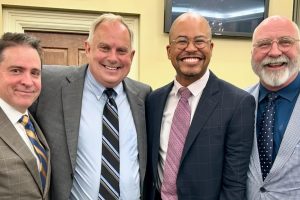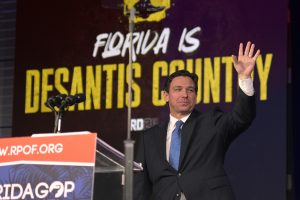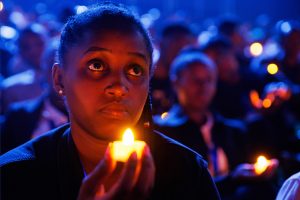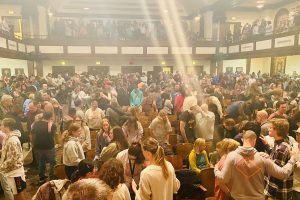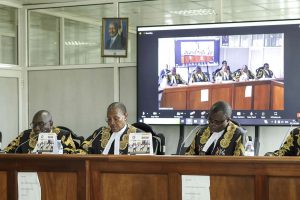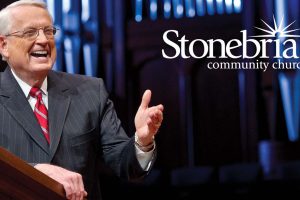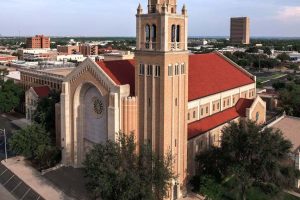By Libby Grammer Garrett
Everywhere I have gone this week, from the doctor’s office to Facebook, I find myself inextricably entangled in turbulent conversations about my high-school alma mater’s cheerleaders, their inspirational football-game banners citing passages like, “I can do all things through Christ, who strengthens me,” and the unfortunate reactions of many Christians when the school system decided to ban the signs.
From the start, religious leaders (including, sadly, some Baptists) have led the rallying cry against what they perceive as the government’s intrusion into the religious affairs of Lakeview-Fort Oglethorpe High School. This has prompted students and parents alike to rally in droves to “fight the man.”
What disturbs me most is not the Christian messages on the signs (they were there the two years I played for and led the marching band) but the anger that so many of our fellow Christians have demonstrated in their actions in response to what amounts to rather reasonable legal reckoning by the school board. Their anger is directed at a system they think is seeking to destroy their faith, the person who called the superintendent to raise questions about the legality of the signs, and practitioners of other faiths (who they say get “special treatment” in schools, such as Muslim students who get special rooms to pray or Jewish students who get special excused days off).
Meanwhile, they say, Christians are “martyred” for being the majority.
But of what, exactly, does this martyrdom of Christianity consist? Has the faith died in the public sphere just because the government’s schools are limited in their promotion of one faith over another?
I think not. From the start, the true martyrs of the Baptist faith in particular have supported separating religion and government from each other’s control. When the dissenters from Massachusetts Bay Colony, led by Roger Williams, escaped their persecution under the Puritans, they founded Rhode Island — a state dedicated not to mere religious tolerance, but to full religious freedom. Colonial Baptists such as John Leland continued this rich heritage, influencing the nation’s founding fathers to craft an amendment to protecting the church and the state from each other.
So why have so many Baptists moved away from our heritage in situations like the one in Fort Oglethorpe, Ga.?
I believe the answer is fear. Fear motivates the Christian majority in my little hometown — fear of being overrun by those who think differently from Southern conservatives, fear of losing their traditions and heritage and fear of losing their majority hold on society.

Cheerleaders at Lakeview-Fort Oglethorpe High School have been using Bible verses to motivate players for several years.
|
It is unfortunate to see so many of my well-meaning sisters and brothers in Christ fighting among themselves, and fighting nonbelievers, against a law that only protects us all from persecution and coercion in matters of conscience. This attitude encourages hatred and scorn for those who disagree, and teaches our students to continue a legacy of bickering — all for the sake of preserving a “tradition” whose vintage is actually rather recent.
Students, parents, church leaders and lay leaders need to refocus not on the one thing our students cannot do in their school — that is, proselytizing by official school representatives at football games — but on what students can do to make an impact for the cause of Christ in their schools and communities. Many organizations are available to students to share the gospel message. Students may join local chapters of the Fellowship of Christian Athletes, “Y”-clubs or other student-led Christian groups at local public schools. There, they can serve others while continuing to share Christ with their peers without any intervention by the school to dictate what they can or cannot say.
Focusing on improving relationships with other faiths will bear many fruits for the Kingdom. Mutual understanding is key to opening doors to share our faith in Christ with others, and freedom to do so without interference from government entities is mandatory to avoid reverting to Old World systems of religious control over our public institutions and public control over religious institutions.
Without a change in perspective, these arguments over cheerleading signs will continue to be indicative of the “signs of the times” — the era in which the Religious Right leads crusades against all others, demonizing well-meaning people (including other Christians) and making a mockery of the command to love our neighbor as ourselves. I hope and pray we can move past this anger-spawned rallying into well-meaning conversation with others about our faith that avoids the debasing rhetoric so apparent in the current dispute.






















